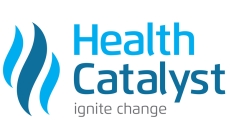ROBBINSDALE, MN — (Marketwire) — 02/14/13 — North Memorial Health Care, an independent health care system that serves the Twin Cities metro area, has driven almost to zero its rate of potentially harmful and unnecessary early-term deliveries, using technology and processes from (formerly Healthcare Quality Catalyst), the leader in healthcare data warehousing. North Memorial-s use of the technology and the team process it put in place reduced its rate of elective pre 39-week deliveries by 75 percent in just six months, from 1.2 percent to just 0.3 percent of all births. As a result, North Memorial achieved significant reductions in the cost of providing this care, exceeding the terms of a pre-arranged incentive payment of $200,000 from one of its primary insurance partners.
Studies have shown that elective deliveries before 39 weeks increase the risk of newborn respiratory distress as well as the rates of C-sections, which can lead to postpartum anemia and longer hospital stays for both mothers and babies. Cutting the odds of such costly complications is becoming increasingly critical for hospitals as they struggle to adjust to rising costs, stiff regional pressures from competitors, and reimbursement trends that punish them for failing to meet quality benchmarks.
North Memorial-s success with early-term deliveries encouraged the health system to expand its use of Health Catalyst technology to virtually every one of its clinical departments. By putting information directly into the hands of physicians, the initiative has worn down traditional physician resistance to change, which can complicate hospitals- attempts to implement sweeping clinical quality improvements, said Kevin J. Croston, MD, chief medical officer of North Memorial.
“We were previously a very old school, paper-driven organization that often made decisions based on gut feeling rather than data,” said Dr. Croston. “Health Catalyst has helped us transform into a data-driven health system. The best part of this is when we use and pull up data in meetings with physicians, they pay attention and are engaged. They start asking questions and coming up with ideas. It makes them willing agents of change when they trust the information and you start moving in a new direction with them.”
To begin their work on early-term deliveries, North Memorial established a service line guidance team comprised of OB/Gyns, primary care physicians, nurses, a data architect and outcomes analyst, all led by Jon Nielsen, MD, medical director of women & children-s services. Using data aggregated by Health Catalyst from sources including North Memorial-s Epic electronic health record (EHR), their job was to define when early-term deliveries were appropriate, standardize clinician workflows and create better processes for pregnant women and newborn care.
Previously, elective deliveries were relatively easy for nurses to approve and schedule using the EHR. Dr. Nielsen-s team built a process into the EHR that, while still allowing nurses to schedule early-term deliveries, required them to pass a checklist of requirements for medical necessity. Elective deliveries were immediately referred to the medical department chair for review and, unless they were determined to be medically necessary, refused.
“We wouldn-t have had a chance to do some of the things we-ve done in the last 18 months to enhance care, reduce waste and lower costs without Health Catalyst,” said Dr. Nielsen of the process. “It-s amazing how differently and effectively we can gather and use data now.”
The results of the initial Health Catalyst engagement not only earned North Memorial a significant bonus from one payer, but encouraged the health system to approach insurers and employers across the Twin Cities about entering into shared cost-reduction reimbursement contracts for additional care processes.
“We have proven our ability to reduce complications and NICU admissions for newborns, saving money for insurers and employers,” Dr. Nielsen said. “We are optimistic that both groups will agree to reward us for delivering ever higher quality at reduced costs, as it aligns perfectly with value-based purchasing.”
North Memorial has provided health care services in the Northwest metro area of Minneapolis-St. Paul, Minn. and beyond for more than 50 years. North Memorial includes North Memorial Medical Center, a Level I Trauma Center, Maple Grove Hospital, a community-based hospital operated through a partnership between North Memorial and Fairview Health Services, and a network of primary, urgent care and specialty care clinics. North Memorial also operates one of the largest hospital-based air and ground ambulance services in the country.
Based in Salt Lake City, (formerly Healthcare Quality Catalyst) delivers a proven, agile data warehouse platform that actually works in today-s transforming healthcare environment. Currently 81 hospitals caring for 20 million patients utilize Health Catalyst-s Adaptive Data Warehousing platform and solutions. Founded by healthcare veterans who developed their solution after struggling for years to try to make non-healthcare data warehousing solutions work, the Health Catalyst data warehouse utilizes an adaptive approach designed specifically to address the complex nature of healthcare data. Health Catalyst-s platform combines technology solutions and clinical expertise borne out of repeated successful implementations that significantly improved quality of care and reduced healthcare costs. Health Catalyst-s proven solutions are deployed at leading health systems including Allina Health, Indiana University Health, MultiCare Health System, North Memorial Health Care, Providence Health & Services, Stanford Hospital and Clinics, and Texas Children-s Hospital. Visit , and follow us on .
Todd Stein
Amendola Communications
916-346-4213


You must be logged in to post a comment Login